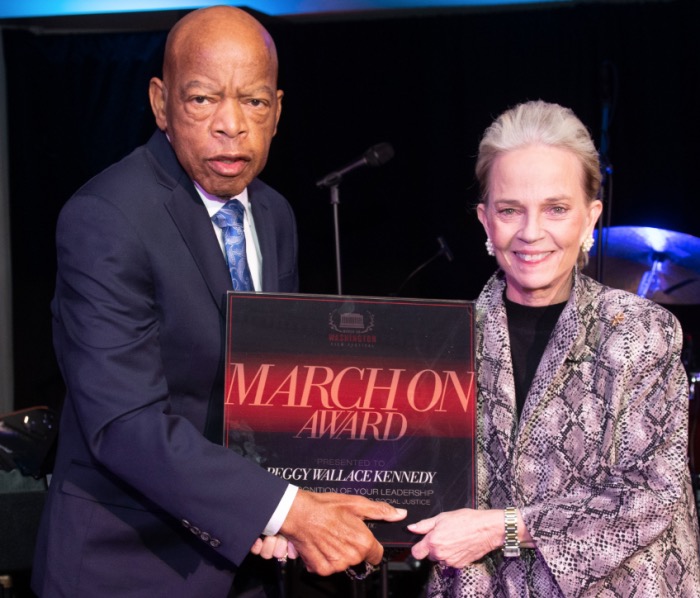An Unlikely Alliance

“Today, America mourns the loss of one of the greatest heroes of American history: Congressman John Lewis, the Conscience of the Congress. John Lewis was a titan of the civil rights movement whose goodness, faith and bravery transformed our nation – from the determination with which he met discrimination at lunch counters and on Freedom Rides, to the courage he showed as a young man facing down violence and death on Edmund Pettus Bridge, to the moral leadership he brought to the Congress for more than 30 years.” Speaker Nancy Pelosi
The Edmund Pettus bridge became a symbol of changes taking place in Alabama and the South. It was there that voting rights marchers were violently confronted by law enforcement personnel on March 7, 1965. The day became known as Bloody Sunday. Some five months later, President Lyndon Johnson signed the Voting Rights Act of 1965.
“In 2009, I walked across the Edmund Pettus bridge with (now Rep.D-GA) John Lewis and realized that love and reconciliation can heal the human heart. That’s what I wanted to build my legacy on for my children to know that their mother had found her own voice and that she was building a legacy for them to be proud of; that I was going to speak up and speak out on racial harmony and racial equality and that we can all find our voice and believe in ourselves and love ourselves. We need to, because all of our lives count for something and we should always respect each other for each other’s humanity. That’s the legacy that I wanted to leave for my sons.” Peggy Wallace Kennedy
From the daughter of one of America’s most virulent segregationists, a memoir that reckons with her father George Wallace’s legacy of hate–and illuminates her journey towards redemption.
Peggy Wallace Kennedy has been widely hailed as the “symbol of racial reconciliation” (Washington Post). In the summer of 1963, though, she was just a young girl watching her father stand in a schoolhouse door as he tried to block two African-American students from entering the University of Alabama. This man, former governor of Alabama and presidential candidate George Wallace, was notorious for his hateful rhetoric and his political stunts. But he was also a larger-than-life father to young Peggy, who was taught to smile, sit straight, and not speak up as her father took to the political stage. At the end of his life, Wallace came to renounce his views, although he could never attempt to fully repair the damage he caused. But Peggy, after her own political awakening, dedicated her life to spreading the new Wallace message―one of peace and compassion. In this powerful new memoir, Peggy looks back on the politics of her youth and attempts to reconcile her adored father with the man who coined the phrase “Segregation now. Segregation tomorrow. Segregation forever.” Timely and timeless, The Broken Road speaks to change, atonement, activism, and racial reconciliation.





